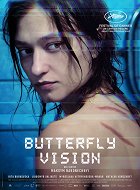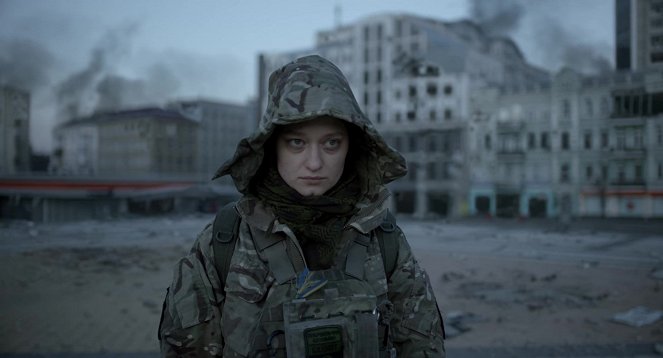Opisy(1)
Lilia jest ukraińską żołnierką i wraca do domu, do swojej rodziny, po miesiącach spędzonych w niewoli w Donbasie, gdzie była przetrzymywana przez separatystów. Trauma niewoli tkwi w niej bardzo głęboko, a dręczące ją senne koszmary nie pozwalają zapomnieć. Jako ekspertka od rozpoznania lotniczego widziała akcję na linii frontu z perspektywy drona, jako cywil i żona postrzega teraz otaczający ją świat w podobny sposób. Intensywne emocje zostały wyparte przez bezradność, człowieczeństwo przez brak wrażliwości. Jednak jeśli chcesz po prostu żyć swoim życiem, widok z lotu ptaka niekoniecznie jest najlepszą opcją. Lili nie chce być ofiarą i będzie walczyć o wyzwolenie. (Warsaw Film Festival)
(więcej)Materiały wideo (1)
Recenzje (1)
The heroine of the film is Lilja (Rita Burkovska), a marine who had been held captive by Donetsk separatists and whose view of the world changed irrevocably when she returned home. At the front, she watched her surroundings from the bird's eye view of spy drones; after the horrors she experienced, she feels similarly distant in private. And so is the audience, which has nothing to grasp in this thematic tangle. Nakonechnyi, who introduced Butterfly Vision himself, uses a detached and partly documentary form to polemicise not only about female victims of war crimes, but about Ukraine as such. In his and Lilja's eyes, she’s internally conflicted and full of tension, which leads to tragic personal acts. The inexperienced director, who has only made short films with LGBTQ+ themes, throws a bunch of motifs at the audience based on different perspectives and his film desperately lacks clarity. He’s eager to comment on many issues, and in addition to the moral question of a mother considering aborting a child conceived after being raped by an enemy, he points out, for example, the disrespect of a failed state for its military heroes or the racial strife within the nation. All this is then wrapped up in a frame plot with flashbacks that tell us nothing and end with a short intense montage like in Requiem for a Dream. It's a challenging argumentative film, but it was selected for Cannes mainly for political reasons – it doesn't cut it on its own and leaves an aftertaste of an unfinished and incoherently procedural work.
()


